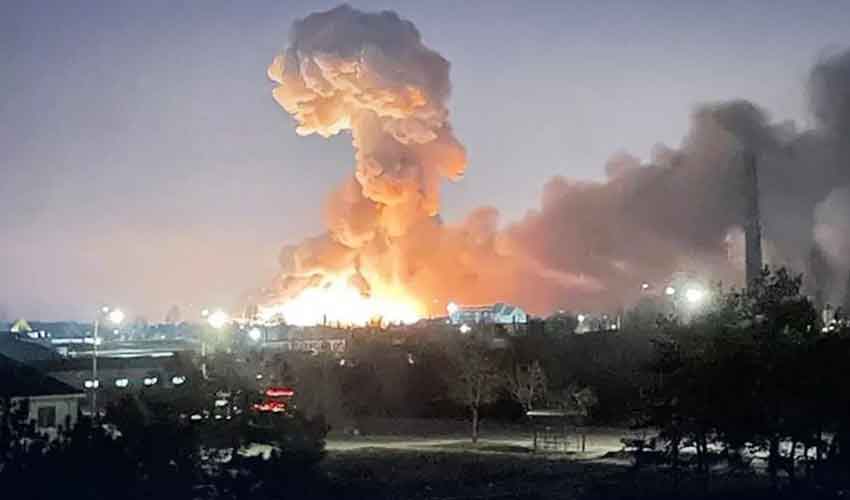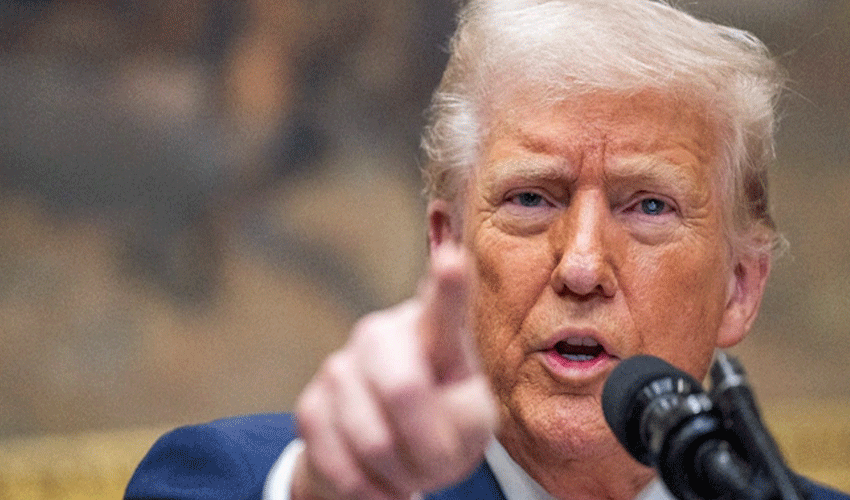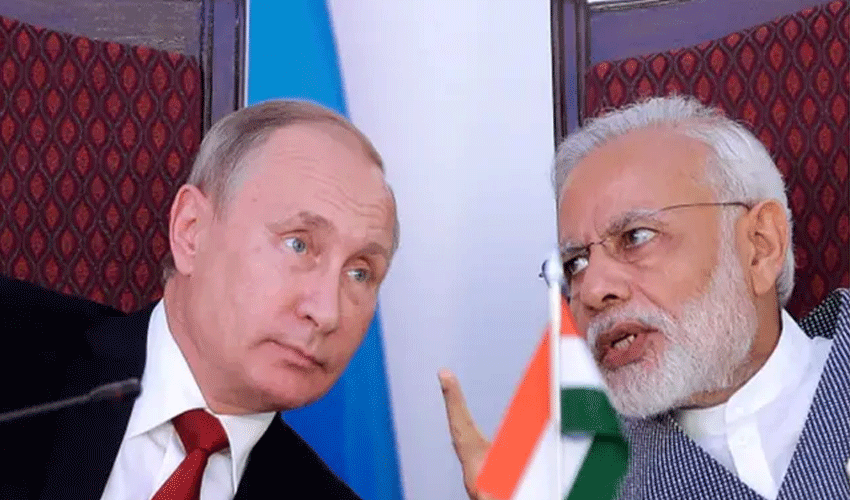The attack came exactly a week after Moscow launched more than 200 missiles and drones on Ukraine, killing seven people and striking energy facilities nationwide in what Kyiv called the war's "most massive" attack.
Russia denies targeting civilians in the 30-month-old war unleashed by Moscow's invasion of its smaller neighbour.
Russian missiles strike Ukraine's Kharkiv
At least 47 people, including five children, were injured on Sunday after Russian missiles struck a shopping mall and events complex in Ukraine's northeastern city of Kharkiv, officials said.
Earlier in the day, Russia said Kyiv had launched one of the biggest drone attacks against it since the full-scale war began, targeting power plants and an oil refinery, while Moscow's forces made further gains towards a key town in eastern Ukraine.
The Kharkiv attack prompted Ukrainian President Volodymyr Zelenskiy to renew calls on allies to allow Kyiv to fire Western-supplied missiles deeper into enemy territory and reduce the military threat posed by Russia.
The fighting comes at a critical juncture in the two-and-a-half year conflict. Russia is pressing an offensive in eastern Ukraine while trying to expel Ukrainian forces that broke through its western border in a surprise incursion on Aug. 6.
Last week, Russia pounded Ukraine with its heaviest airstrikes of the war, hitting targets including energy facilities.
Moscow, which denies targeting civilians, says damaging Ukraine’s energy system is a legitimate military goal. Its drone and missile barrages have killed thousands of civilians since the conflict began in February 2022.
Ukraine, with a rapidly expanding domestic drone industry, has stepped up its own attacks on Russian energy, military and transport infrastructure.
Kyiv is also pressing the United States and other allies for permission to use more powerful Western-supplied weapons to inflict greater damage inside Russia and hit Moscow's abilities to attack Ukraine.
"All the necessary forces of the world must be brought in to stop this terror," Zelenskiy said on his Telegram channel, in response to the Kharkiv attack that Ukrainian officials said involved at least 10 missiles.
"This does not require extraordinary forces, but enough courage on the part of the leaders - courage to give Ukraine what it needs to defend itself."
In Kharkiv, rescue workers and volunteers carried injured civilians to ambulances outside the shopping complex. Shattered glass and debris were strewn across the ground and people fled to a metro station for safety.
Earlier, Russian officials said air defence units had destroyed 158 drones launched by Ukraine overnight, and that debris caused fires at the Moscow Oil Refinery and at the Konakovo Power Station in the neighbouring Tver region.
Kyiv has yet to comment on the drone barrage. Russia rarely discloses the full extent of damage inflicted by Ukraine's air attacks.
Russia's nuclear doctrine
Zelenskiy said that last week alone Russia had used 160 missiles, 780 guided aerial bombs and 400 attack drones against cities and troops across Ukraine.
He called on Telegram for "a decision on long-range strikes on missile launch sites from Russia, destruction of Russian military logistics, joint shooting down of missiles and drones".
Kyiv's allies are wary of how Russian President Vladimir Putin would respond if their weapons were used against targets far inside Russian territory.
Russia's TASS state news agency cited Deputy Foreign Minister Sergei Ryabkov as saying Moscow would change its nuclear doctrine in response to the West's actions over the conflict. He did not specify what the changes would entail.
Russia's existing nuclear doctrine, set out in a decree by President Vladimir Putin in 2020, says it may use nuclear weapons in the event of a nuclear attack by an enemy or a conventional attack that threatens the existence of the state.
Russia, which accuses the West of using Ukraine as a proxy to wage war against it, has said before it is considering changes.
"The work is at an advanced stage, and there is a clear intent to make corrections", TASS cited Ryabkov as saying.
Some hawks among Russia's military analysts have urged Putin to lower the threshold for nuclear use in order to "sober up" Russia's enemies in the West.
Advances in eastern Ukraine
In eastern Ukraine, where the heaviest fighting of the war is concentrated, Russian forces continued to advance towards Pokrovsk, a vital military hub and transport link to towns and cities further north.
Ukraine had hoped that its surprise incursion into Russia's Kursk region launched last month would force Russia to re-deploy troops and take pressure off besieged forces in the east, but so far it does not appear to have had this effect.
Russia's defence ministry said its forces had captured two more settlements in Donetsk region and were "continuing to advance deep into the enemy defences". One of them, Ptyche, is 21 km (13 miles) southeast of Pokrovsk.
At least three people were killed and nine wounded in Russian shelling of Kurakhove, a town around 35 km south of Pokrovsk, Ukrainian officials said.
Ukraine's army chief, Oleksandr Syrskyi, described the situation as "difficult" around Russia's main line of attack in eastern Ukraine.
Also on Sunday, Ukrainian forces shelled Russia's southern Belgorod region, injuring 11 people, including two children who were seriously hurt, regional governor Vyacheslav Gladkov said.



























